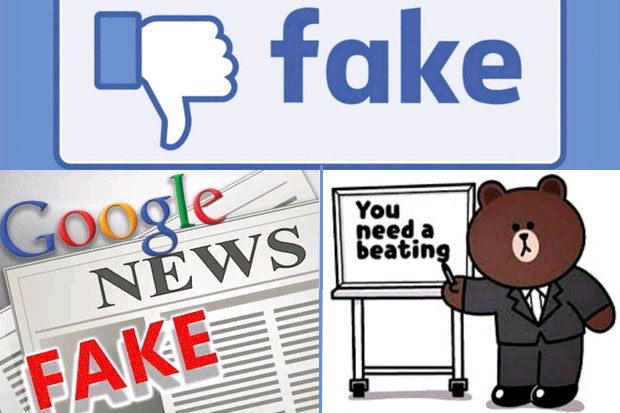
Tech giants are addressing the spread of fake news and election manipulation in the lead-up to the general election by cooperating with local media and setting up features to reduce the problem.
Google will cooperate with Thai media agencies to bring its Fact Check feature to Thai search results to track fake news in preparation for the upcoming election. The feature allows articles to show a Fact Check tag identifying whether it has been verified by a news publication or fact-checking organisation.
Saiyai Sakawee, communications manager of Google Thailand, said that after the election is announced formally, the Google News Lab team will work with local media firms to create trusted sources of information through its Fact Check feature on its search engine in order to help users.
Google will cooperate with the US embassy to train journalists to use the Fact Check tag on Google News for stories that appear in search results. The company's News Lab also offers some free tools for newsrooms that allow journalists and developers to offer data visualisation.
"We will add Thailand maps in the tools for the election soon," Ms Saiyai said.
Moreover, Google-owned YouTube provides a breaking-news search context to help users find videos about ongoing events from trusted channels.
The social media website's officials say they are "working with their teams" on setting up partnerships with third-party media groups but have not finalised any details.
The company offers third-party fact-checking in 25 countries, where certified media outlets work with Facebook to tag articles shared on the platform as false or misleading, but it has not set up any such partnerships in Thailand.
The company may also ban advertisements bought by foreigners during the election, according to Katie Harbath, Facebook's director for global politics and government outreach.
Facebook has increased its global security team from 10,000 to 30,000 employees, partly in response to criticisms that it facilitated the spread of fake news during the 2016 US presidential election. The company focuses much of its efforts on banning fake accounts, often involved in spreading false information. Through machine learning and humans, Facebook now bans over 99.6% of fake accounts before they are reported by other users.
"We want to make sure people have the right information about the election, we want to make sure they feel safe about participating, and we want to make sure people aren't discouraged from voting," Ms Harbath said.
Line Thailand is insisting it will not allow any stickers influencing the election or politics as a matter of policy, even those urging people to go out and vote on election day.
According to the company's policy, it operates its business on the basis of not getting involved in religion, politics, sex and violence.
Line Thailand does, however, allow users, including politicians, to create their own stickers that would have to be approved by the company.
Creators of such stickers have to strictly comply with the group's policy, said Kanop Supamanop, stickers business director at Line Thailand.
Ome Sivadith, national technology officer of Microsoft Thailand, said Thai organisations can train machine learning to detect fake news, while Microsoft's MSN portal already has a selected list of trusted news sources.
In the international news reports, Microsoft's new version of the Internet Explorer web browser can warn users about potentially untrustworthy news sources.

